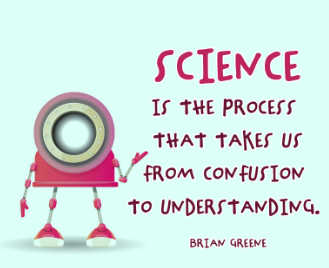Science
Welcome to Science at St Anne's!
Here you will find all the important documents, information and photos showcasing our science learning.

Subject Information
Science Intent
Our intention when planning and delivering the science curriculum is to foster and develop our pupils’ curiosity in the subject, whilst also helping them to fulfil their potential. Moreover, we aim to prepare our pupils for life in an increasingly scientific and technological world. We aim to make pupils aware of links between science and other school subjects, as well as the impact of science on their lives.
It is hoped that the children in our school will enjoy their experiences, whilst increasing and developing their scientific knowledge, in order that they understand more of the world in which we live.
We believe science encompasses the acquisition of knowledge, concepts, skills and positive attitudes. It is intended that, throughout the programmes of study (from the framework of the 2014 National Curriculum), the children will acquire and develop the key knowledge that has been identified within each unit and across each year group, as well as the application of scientific skills.
We aim to ensure that the Working Scientifically skills are built-on and developed throughout children’s time at the school so that they can apply their knowledge of science when using equipment, conducting experiments, building arguments and explaining concepts confidently and continue to ask questions and be curious about their surroundings.
Through the framework of the 2014 National Curriculum, we intend:
- Our pupils will build up a body of key foundational knowledge and concepts from EYFS up to KS2
- To equip children to use themselves as starting points for learning about science, and to build on their enthusiasm and natural sense of wonder about the world.
- To help pupils develop the skills of observation, prediction, hypothesising, experimentation, investigation, observation, measurement, interpretation and communication.
- To introduce pupils to the language and vocabulary of science.
- To develop pupils’ ability to pose questions, investigate these using correct techniques, accurately record their findings using appropriate scientific language and analyse their results.
- To encourage and enable pupils to offer their own suggestions, to be independent thinkers, to be creative in their approach to science, and to gain enjoyment from their scientific work.
- To enable children to develop their skills of co-operation through working with others, and to encourage where possible, ways for children to explore science in forms which are relevant and meaningful to them.
- To develop scientific enquiry through contexts taken from the National Curriculum 2014 for science.
- To encourage children to collect relevant evidence and to question outcome and to persevere.
- To encourage children to treat the living and non-living environment with respect and sensitivity.
- To enable children to appreciate that we do not always know the answers and results when carrying out scientific enquiry.
- To promote a ‘healthy lifestyle’ in our pupils.
- To provide our children with wider opportunities in science and make links to other subjects.
- To monitor our schools progress in science regularly.
Implementation
We follow a programme which allows for the exploration of the world of science to develop a knowledge and understanding of biology, physics and chemistry.
Our whole school approach to the teaching and learning of science involves the following:
- Science will be taught in planned and arranged topic blocks.
- Teachers use assessment for learning to tailor lessons around our children and help us plan for next steps.
- Teachers identify those children with gaps in learning, aiming to ensure all children keep up.
- Teachers build upon the learning and skill development of the previous years. As the children’s knowledge and understanding increases, and they become more proficient in selecting, using scientific equipment, collating and interpreting results, they become increasingly confident in their growing ability to come to conclusions based on real evidence.
- Working Scientifically skills are embedded into lessons to ensure these skills are being developed throughout the children’s school career.
- New vocabulary and challenging concepts are introduced and developed through the years.
- Children are given opportunities to develop their understanding of their surroundings by accessing outdoor learning.
- Planning involves teachers creating engaging lessons with cross-curricular links wherever possible.
- Through our planning, we involve problem solving opportunities that allow children to find out for themselves.
- Children are given the opportunities to learn from one another and to take part in group/partner work when appropriate.
- Children are encouraged to work independently when needed.
- Children are encouraged to ask their own questions and be given opportunities to use their scientific skills and research to discover the answers.
- Children are offered a wide range of extra-curricular activities, visits, trips and visitors to complement and broaden the curriculum.
- Events, such as Science Week, Space Week and Farm to Fork Week, allow all pupils to come off-timetable, to provide broader provision and the acquisition and application of knowledge and skills. These events often involve families and the wider community.
- Primary Engineering/STEM activities and out of school competitions are given a high profile.
- We maintain a high level of subject knowledge of science in our school by regular training and professional development.
Impact
Our approach to the teaching and learning of Science, results in children being provided with the foundations and knowledge for understanding the world. Children’s work shows a range of topics and curriculum coverage for all science topics, with evidence of progression of knowledge and skills.
The involvement of children with STEM and Primary Engineering activities has given them the understanding that science has changed our lives and that it is vital to the world’s future prosperity. Children learn about the possibilities of careers in science through links with engineers and other role models in our wider community.
Children enjoy and are enthusiastic about science in our school, resulting in motivated learners with a good scientific background.
